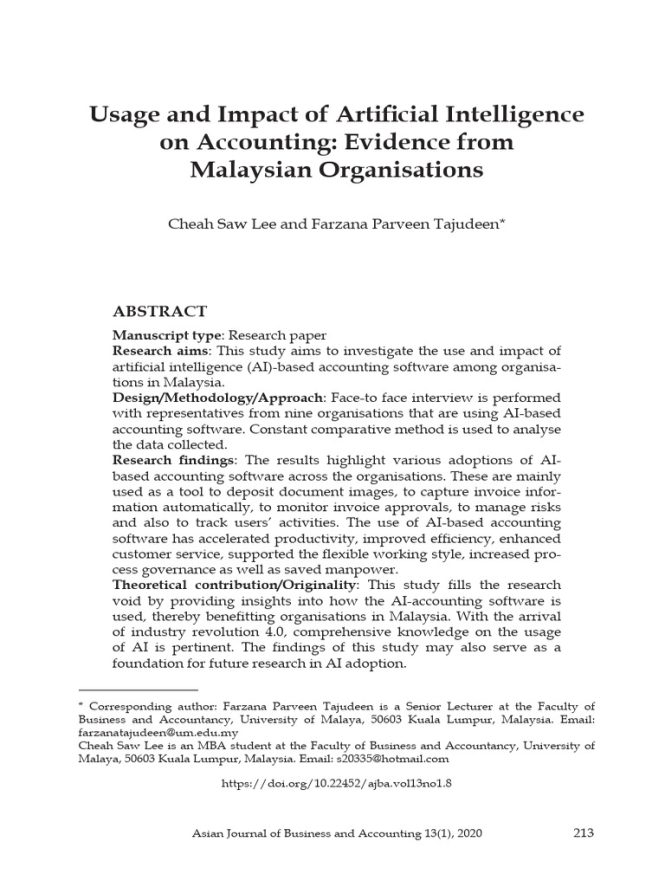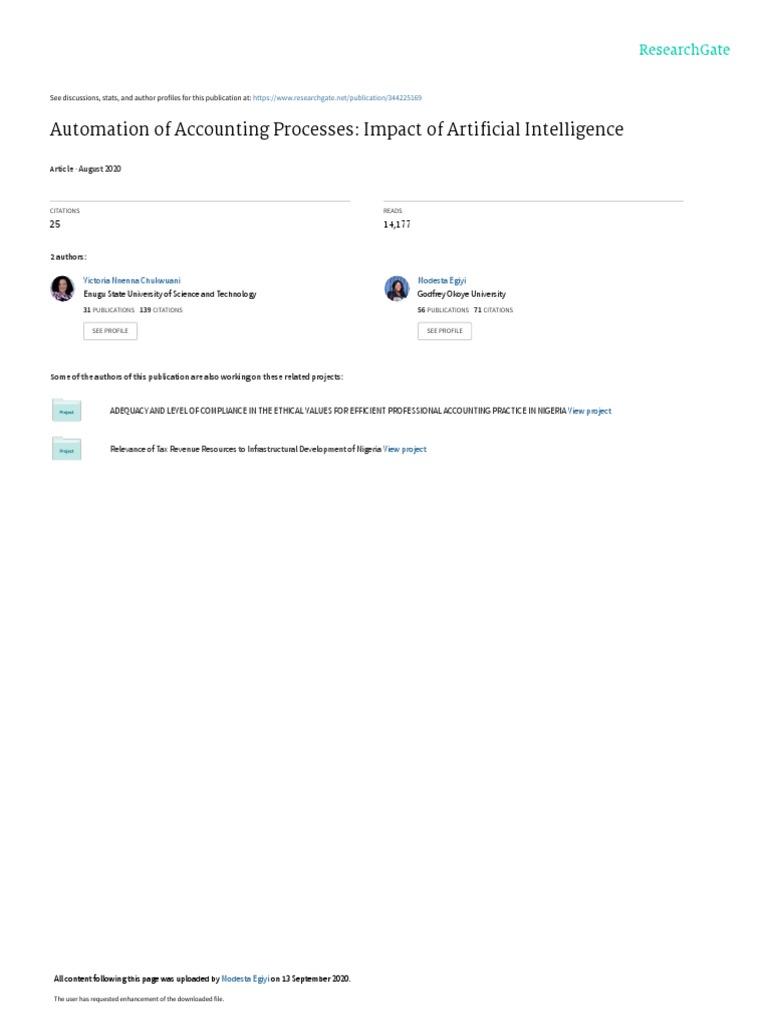

The impact of artificial intelligence on accounting practices is reshaping the industry, automating tasks, and enhancing the accuracy of financial data. Imagine a world where financial reports are generated with unprecedented speed and precision, freeing up accountants to focus on strategic analysis rather than repetitive tasks. This article will explore the transformative impact of AI on accounting, highlighting both the opportunities and challenges of this technological revolution. We will examine how AI is changing everything from bookkeeping to auditing, and discuss the crucial skills accountants need to adapt in this dynamic environment. We’ll also address concerns like job displacement and the ethical implications of AI in the accounting profession. This in-depth look at AI’s role in accounting will equip you with the knowledge needed to navigate this exciting and rapidly evolving landscape.
Automating Repetitive Tasks
Streamlining Bookkeeping and Data Entry
Artificial intelligence (AI) is rapidly automating repetitive tasks in accounting, from data entry and bookkeeping to basic reconciliation. AI-powered software programs can process vast amounts of data with incredible accuracy and speed, leading to significant efficiency gains. These programs often use machine learning algorithms to learn and improve their accuracy over time, reducing errors and freeing up accountants from mundane tasks. For instance, imagine a system that automatically imports transaction data from various sources, categorizes it, and prepares journal entries. This not only increases accuracy but also frees up accounting staff for more strategic and higher-value tasks. The rise of robotic process automation (RPA) in accounting further exemplifies this trend, with software robots taking over routine tasks, drastically reducing manual work and improving operational efficiency.
Enhancing Accuracy and Reducing Errors
AI’s Role in Preventing and Detecting Financial Fraud
AI’s impact extends to enhancing the accuracy and reducing the potential for errors in financial reporting. Sophisticated AI systems can identify patterns and anomalies in large datasets, flagging potential errors or fraudulent activities that might otherwise go unnoticed. By analyzing transaction history, identifying unusual spending patterns, and evaluating the data against established benchmarks, AI can effectively predict and prevent financial fraud and misconduct. This proactive approach to fraud detection can save organizations substantial financial losses while strengthening the overall security of financial processes. For example, one accounting firm is using AI to analyze thousands of transactions every day to flag potential irregularities in real-time. The results show a 20% reduction in fraudulent activities within the first year of implementation.
Improving Financial Reporting and Analysis
AI’s Capabilities for Forecasting and Predictive Modeling
AI algorithms are revolutionizing financial reporting and analysis, providing businesses with powerful tools for forecasting and predictive modeling. Using historical data and market trends, AI-driven systems can produce accurate predictions about future financial performance. These forecasts are not only beneficial for planning but also crucial for identifying potential risks or opportunities. For instance, by analyzing sales data, market trends, and economic indicators, an AI system could predict potential revenue shortfalls or suggest new market entry strategies. This predictive modeling capability offers a significant advantage in strategic decision-making.
Changing the Role of Accountants
Adapting to the AI-Powered Future of Accounting
The impact of AI is not just about automation; it’s about shifting the focus of accounting professionals. As AI takes on more routine tasks, accountants are becoming more strategic advisors and business partners. Their responsibilities will include designing and implementing AI systems, monitoring and evaluating their performance, and providing insights based on AI-driven data analysis. This evolving role requires accountants to develop new skills in areas like data interpretation, analytics, and AI implementation.
The Ethical Implications of AI in Accounting
Addressing Concerns About Bias and Data Security
A significant aspect of the AI revolution is the ethical considerations it raises. As AI systems learn from data, there’s a possibility of inherent bias if the training data reflects existing societal biases. It is crucial to ensure that AI systems are trained on diverse and representative datasets to avoid perpetuating harmful biases in financial decisions. Furthermore, data security is paramount, especially with the increasing amount of sensitive financial data being processed by AI systems. Implementing robust security measures is essential to protect against data breaches and ensure the confidentiality and integrity of financial information. Several organizations are now addressing these ethical concerns through strict compliance measures and rigorous data governance policies.
FAQ
What are the top benefits of using AI in accounting?
AI in accounting offers several key advantages, including increased efficiency and accuracy in data processing, reduced human error, and enhanced insights into financial data. This leads to better decision-making and overall improved financial performance. The automation of repetitive tasks allows accountants to focus on more strategic responsibilities, providing greater value to the organization. In addition to these benefits, AI-powered tools can also detect anomalies and potential fraud, leading to increased financial security.
How does AI impact the future of the accounting profession?
The impact of AI on the accounting profession is multifaceted. While AI may automate some tasks, it’s changing the role of the accountant from a data processor to a strategic advisor and analyst. This involves developing new skills in data interpretation, analytics, and AI implementation. Accountants will need to adapt to this changing landscape and adopt new technologies to remain relevant and valuable in the profession.
In conclusion, the impact of artificial intelligence on accounting practices is profound and transformative. AI is automating tasks, enhancing accuracy, and enabling proactive analysis. While concerns remain about job displacement and ethical implications, the long-term benefits for increased efficiency and better decision-making are significant. To fully harness these advantages, accounting professionals should embrace continuous learning and adaptation. This includes upskilling in AI-related technologies to better leverage new tools and methodologies in their daily work. Further, businesses should prioritize data security and privacy in their AI-powered accounting systems. Embrace the future of accounting by attending workshops or online courses to boost your skills and leverage the power of AI.